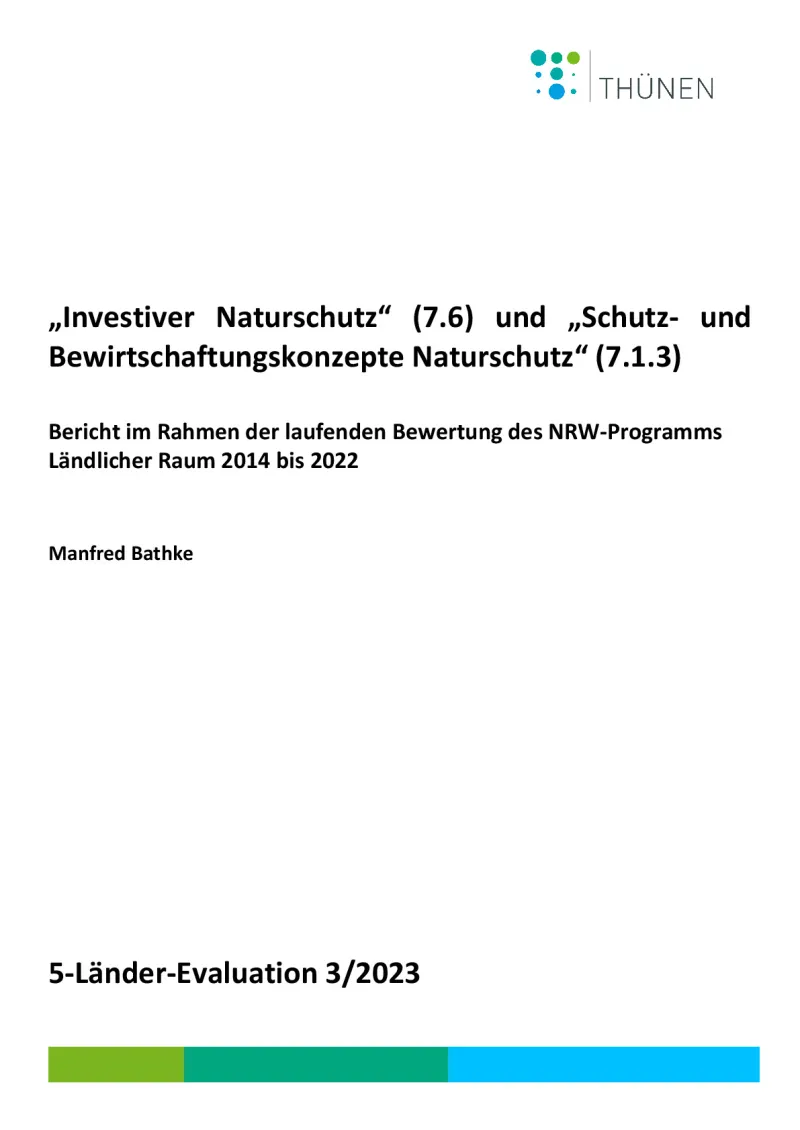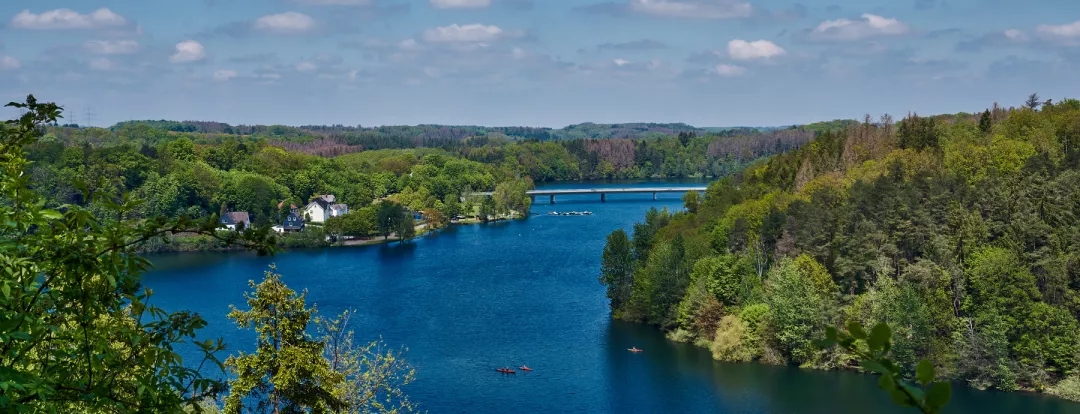Evaluation of investments in protection and management of nature conservation
The evaluation focuses on selected projects in terms of their nature conservation objectives, results and impacts in North Rhine-Westphalia, Germany.
- Germany
- 2014-2022
- Socio-economic impacts


As part of the evaluation of the NRW Rural Development Programme (RDP) for 2014-2022, case studies were carried out in coordination with the German Ministry of the Environment, Nature Conservation and Transport (MUNV) on the funding measure "Investment in nature conservation" (sub-Measure 7.6). Due to the close connection, the measure for conservation and management concepts (sub-Measure 7.1.3) was also included.
The evaluation describes selected projects in terms of their nature conservation objectives, results and impacts. These case studies formed the basis for the evaluation of funding measures as a whole.
The evaluation assesses the effectiveness of two interlinked funding measures in relation to the evaluation question: "To what extent have RDP interventions supported the restoration, preservation and enhancement of biodiversity including in Natura 2000 areas?" (part of common evaluation question 8).
In addition, the efficiency of the administrative funding process was analysed.
The evaluation of the RDP funding measures was based on assessing funding data and document analysis. In-depth information was collected from six case studies.
In particular, the research included expert interviews at various levels (e.g. ministry, approval offices at the district governments, nature conservation authorities and biological stations), analysis of literature and reports, on-site visits to selected funding cases and discussions with beneficiaries.
The analysis of the funding data covered the period from 2016 to 2022 (as of March 2023).
Only the approval data was analysed for the funding data. These included numerous projects that still needed to be finalised. The funding cases could be allocated roughly to different funding objects based on the attached monitoring data and the description of the content. However, a clear allocation was not always possible, as different funding objects were often summarised in one project. The information on the relative scope of different funding objects should therefore be regarded as 'approximate'.
The aim of sub-Measure 7.6 is to support projects for the implementation of Natura 2000, improve the livelihoods of endangered species, and protect and develop biotopes worthy of protection. Under sub-Measure 7.6, 622 projects were approved by March 2023, which are to be funded with a total allocation of EUR 24.3 million. The average funding amount is just under EUR 40 000 euros. Around 14% of the funding was spent via a lump sum and 86% via proportional funding. Sub-Measure 7.1.3 supports the creation of conservation and management concepts and, in particular, the development of management plans for individual FFH areas. Under sub-Measure 7.1.3, 30 projects with total grants of approx. EUR 0.8 million were approved by March 2023. The size of the targeted area is approx. 8 250 hectares.
The funds were concentrated in Natura 2000 and coherence areas (together approx. 80 %). Outside the Natura 2000 areas, measures were mainly implemented to maintain the cultural landscape (e.g. maintenance of orchards, pollard trees, avenues and hedges). The case studies demonstrated a broad range of impacts of the implemented projects. Positive effects on biodiversity were found in all the cases analysed. These can be direct (i.e. biotope management, species protection measures) or indirect (i.e.land purchase, mapping, management planning). Due to the very different impact paths, a summarised quantification of the impacts of the overall measure is not possible.
The administrative implementation of the two RDP measures was also evaluated. Based on the discussions with the beneficiaries and the problems with administrative implementation identified there, recommendations for further implementation and realisation of the funding measures were discussed. As the German federal state will no longer offer this funding measure as part of the CAP Strategic Plan in the future, these recommendations relate to the future organisation of the purely state-funded "Förderrichtlinie Naturschutz" (FöNa). It is recommended that previous EAFRD funding be transferred unchanged to FöNa funding, both in terms of the financial budget and funding rate. Particularly tried-and-tested EAFRD funding modalities should also be adopted unchanged as much as possible (lump sum funding for pollard tree care and orchards).
Author(s)
Manfred Bathke (Thünen Institute)